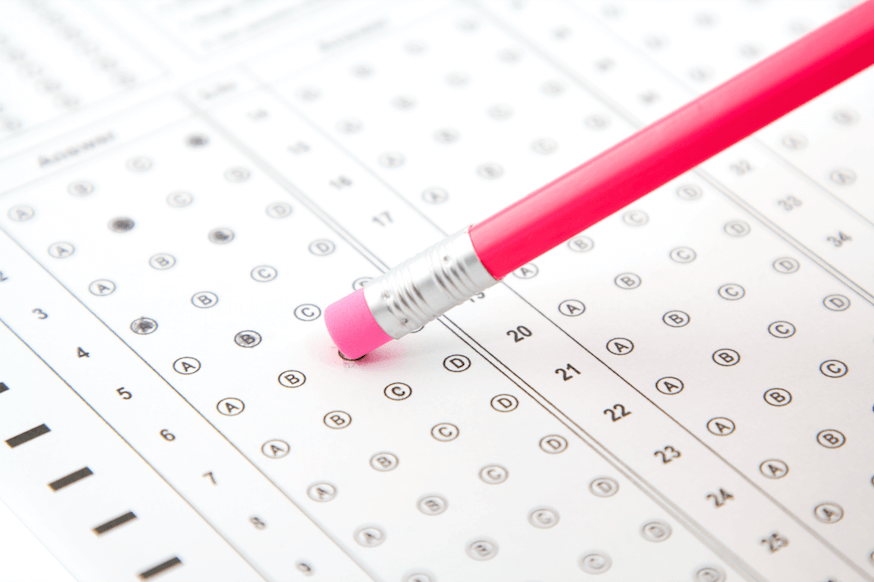Bar Exam Will Change in 2027, NCBE Announces
The National Conference of Bar Examiners (NCBE) recently made a surprising announcement about the bar exam: The July 2027 bar exam will be the last to administer the current NCBE-developed bar exam components, namely the Multistate Bar Examination, Multistate Essay Examination, and Multistate Performance Test. In other words, states will not be able to implement the Uniform Bar Exam (UBE) beyond July 2027. They will be forced to adopt the NextGen Bar Exam or come up with an alternative path to licensure.
The NextGen Bar Exam is set to be administered for the first time in July of 2026, though at the time of this writing, no state has adopted it.
While change is often for the better, the way in which this has been presented leaves room for scrutiny, caution, and potential dissent from states.
A Timeline Crunch That Puts Jurisdictions Under Pressure
One of the most striking issues here is the timeline. Students entering law schools in the fall of 2025 would be slated to sit for the July 2028 bar exam. This gives states about two years to make the decision to adopt the NextGen Bar Exam if they wish to give law schools enough time to adequately prepare students for this new exam. And, part-time students entering either now or in the fall of 2024 may be subject to this new bar exam if they plan to take the bar exam in 2028.
Of course, states could announce that they are adopting the NextGen bar exam any time before 2028, but the longer they wait to do so, the more their incoming students will be prejudiced. This is especially true for law schools that have a heavy focus on bar exam classes and bar exam strategy. For example, if a state announces in 2026 that it will administer the NextGen bar exam in 2028, law schools will have limited time to prepare their soon-to-be graduating students. Thus, states should be inclined to announce they are adopting this bar exam by 2025 if they want to prepare their 2028 graduates for it.
Further, there is still not enough information for law schools to adequately prepare students for the NextGen Bar Exam—even if it was adopted immediately. Sample practice questions for only some portions of the test were just recently released.
Also, the general format, including the length of the test, was not known until this August 28, 2023 announcement when the NCBE did finally shed some light on the test’s format: “The NextGen bar exam will be divided into three sessions of three hours each, with each session containing two integrated question sets, one performance task, and approximately 40 multiple-choice questions. These three-hour sessions will be administered over one and a half days, with six hours of testing time on day one and three hours on day two” Yet, despite this update, a full practice test remains conspicuously absent.
The pressure to make such an impactful decision on incomplete information is not only risky but also borders on the imprudent.
Criticisms of the NextGen Bar Exam
Further, the NextGen Bar Exam has not been universally lauded; in fact, Reuters recently noted it received a “lukewarm reception”. Critics have called the exam “too easy” and have questioned its multiple-choice component as being too dominant and, at points, even too easy. (See our take on it in this article.) Given these preliminary responses and the lack of a full practice test, it’s no wonder that no jurisdiction has yet chosen to adopt this new bar exam.
States and Their Historic Resistance to Change
Moreover, let’s not forget that the legal profession is notoriously slow to change. The Uniform Bar Exam (UBE) was released in 2011 and slowly over the past twelve years, 41 states along with four other jurisdictions have adopted it. Given this snail-paced rate of change, expecting states to make a relatively quick decision about a bar exam that has yet to prove itself seems rather quixotic.
The NextGen Bar Exam—A Rush to Judgment?
The NCBE’s move to sunset the current bar exam components in July 2027 appears to force the hand of jurisdictions into making a rapid and, arguably, poorly informed decision. The imposed timeline seems to underestimate the legal profession’s traditional aversion to rapid change and underplays the actual concerns that educators, law students, and practitioners have raised.
While innovation in bar testing is a commendable pursuit, the stakes here are too high for haste. Given the stakes, it would not be surprising to see states consider other directions for bar examination in the wake of this announcement.
As it stands, the NCBE’s ambitious timeline seems more likely to produce skepticism than consensus, and rightly so. Given the scale of the transition and the mixed early reviews, prudence, not haste, should be the order of the day.








Leave a Reply
Want to join the discussion?Feel free to contribute!